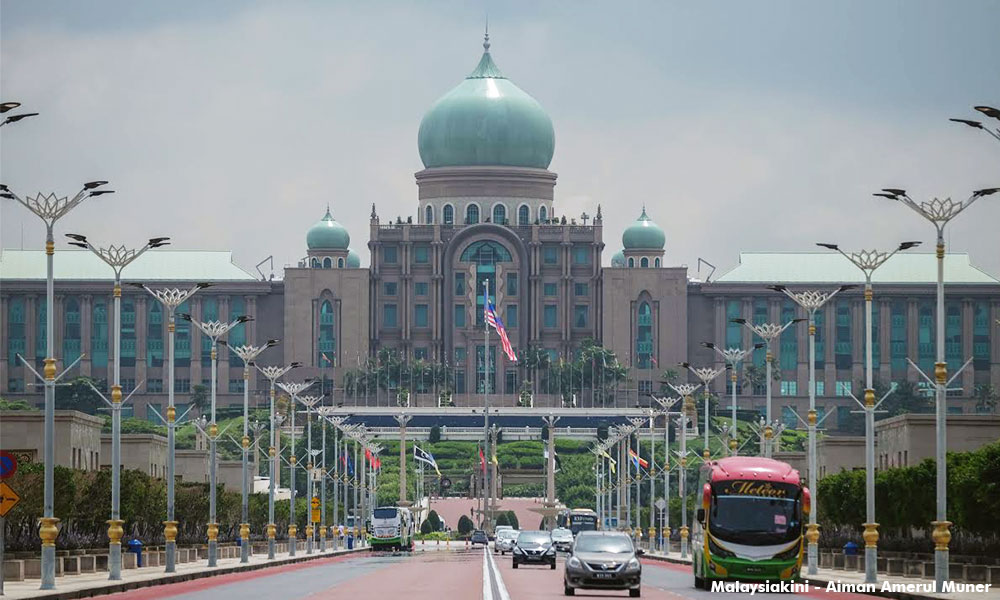
The Proton Perdana comes to a halt in the porch of a multi-storey building. The welcoming party including the director-general (DG) is all dressed up as if they were awaiting the arrival of royalty. Except that there’s no red carpet, but a lift has been reserved for the visitor.
He is flanked by the DG and his two deputies as he is led to a “holding room” for “teh and kuih muih” – part of the standard operating procedure (SOP) in government departments.
Ten minutes later, they adjourn to the adjacent room where the meeting starts. Like being accorded opening remarks in an international seminar, the visitor gives a short address after which the anointed person takes the chair.
Fifteen minutes into the meeting, the visitor says: “Sorry, I have to leave as I have another meeting to attend at the Treasury. Before that, let me sign the attendance sheet.”
Once again the rigmarole starts – the meeting is temporarily adjourned and the visitor is given a rousing send-off. Staff line up to “salam” and express their wishes for a safe journey to the building two blocks away.
Dear readers, welcome to the civil service and its civilities. It is not my imagination but I have watched this a few times as a journalist. What I have described was no ordinary meeting. It was a typical board of directors’ meeting of a statutory body and the visitor was no ordinary Joe.
He was the secretary-general in one of the government ministries – the chief executive. That signature in the attendance sheet (for a paltry 15 minutes) could be worth up to RM10,000 in his pocket due to allowances claimable! This happens once a month at almost all statutory bodies and is replicated in several government-linked companies and agencies.
For every meeting, he collects a few thousand and no one was surprised when PKR president-elect Anwar Ibrahim claimed that top-level civil servants used to take home over five to six times more than the prime minister’s salary during the BN era.
“There were government servants who earned up to RM250,000 a month. The treasury secretary-general earned up to RM260,000 a month,” Singapore-based Today Onlinequoted Anwar as saying at a rally in Lukut last week.
The last treasury secretary-general under the BN government was Mohd Irwan Serigar Abdullah who resigned from various posts or was removed from posts after the new government came to power in May.
I have previously touched on the responsibilities of directors and in the case of the Port Klang Authority, discussed their culpability in breach of fiduciary duties which resulted in multi-billion ringgit losses in the Port Klang Free Zone (PKFZ) project.
I had also written about the salaries, allowances and other benefits enjoyed by directorsof the Human Resource Development Fund (HRDF).
(However, by virtue of signing a non-disclosure covenant upon appointment to HRDF’s Governance Oversight Committee, I am unable to expand on this until a report prepared for the minister is made public.)
Should they be paid?
The quantum of payment can be debated and not it all cases can it be justified. But what is of immediate concern is the eventual beneficiary of the money. It would be wrong to single out the Malayan Railways (KTM), but we will use it as an example for purposes of a healthy discussion.
The Railway Act 1991 provides for the Minister of Transport to appoint the board of directors who shall include a representative of Ministry of Transport; a representative of Treasury; a representative of Economic Planning Unit; and a representative of the Federal Land Commissioner.
In short, they are all government servants and they represent the interests of their respective ministries/government departments. They attend to matters and meetings on rail transportation in their capacity as government officers and on government time.
As such, the pertinent question to ask is: should they be paid emoluments (salaries and allowances) or should be money be credited to the government coffers?
Irwan Serigar would not be the perfect example for he was on the board of a score or more institutions, but there are many others who sit on the board of a dozen or more organisations.
Should the representatives of the Transport Ministry be paid allowances for the roles in KTM? They are there by virtue of their positions in the ministry and isn’t it a case of “double income”?
Similarly, should someone representing the Human Resource Ministry on the boards of HRDF, Socso and the National Institute of Occupational Safety and Health be claiming monthly salaries and allowances? Similar situations exist in all ministries.
In view of the disclosures in the “new” Malaysia, it is time to examine the role of government servants on the boards of government agencies, government-linked companies and statutory bodies.
It will ruffle a few feathers in the civil service but in public interests, these questions have to be asked and addressed. After all, in the present circumstances, government expenditure has come under scrutiny.
We have been asked to tighten our belts and prepare for the worse but the fats cats that drew and continue to draw hefty “extra” pay at the expense of taxpayers could show us the way.
R Nadeswaran made some startling discoveries when perusing the annual reports of government agencies and statutory bodies. Comments: citizen.nades22@gmail.com -Mkini


No comments:
Post a Comment
Note: Only a member of this blog may post a comment.